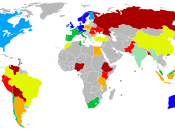Are there any moral reasons why a person who finds life unsatisfactory should not choose death? One approach to answering this question would be to consider the communal obligations people have. Sometimes we have obligations which could not be fulfilled if we were to choose death. However, it is not difficult to imagine cases in which obligations to the community are minimal or are unlikely to be capable of fulfillment or possibly even more likely to be fulfilled by death. Furthermore, the choice of death may on occasion be beneficial either to the individual or the community. So unless it could be shown that obligations to the community were particularly strong, they might on occasion be outweighed by other moral considerations.
An alternative approach to answering this question which goes back at least as far as Plato is to consider whether the choice of death is inappropriate because it is a violation of duties an individual has toward God.
Typically such a view is built upon some metaphorical account of the relationship between God and our lives. In this paper I will discuss two such accounts and the arguments connected with them about the impermissibility of choosing death. Part one will be devoted to what might be called the property metaphor: the idea that our lives belong to God and hence that we are usurping God's prerogative when we choose to destroy them. In part two I will consider the use of a gift metaphor, in particular the claim that our lives are gifts of God and that to take them without God's permission indicates extreme ingratitude. I will try to show that arguments based on either metaphor are insufficient without an adequate account of God's intentions. In part three I develop several accounts of God's purposes in terms of...


